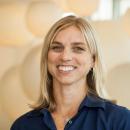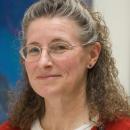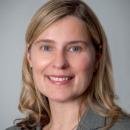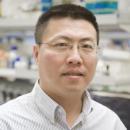History and Mission
Established in 2003 as the first program of its kind, the UW Craniofacial Medicine fellowship is designed to cultivate the next generation of craniofacial specialists. Our goal is to train pediatric providers to become members and leaders of cleft and craniofacial teams and to provide scientific training for those who wish to pursue research as part of their academic careers. Our craniofacial fellows have the opportunity to learn skills at one of the largest craniofacial centers in the United States and will be equipped to help shape the landscape of cleft and craniofacial care.
Craniofacial fellows develop advanced skills for diagnosing and managing patients with craniofacial conditions. Through collaboration with our diverse craniofacial team and coordination with community providers across the WWAMI region, fellows contribute to developing comprehensive and holistic care plans. Our fellows receive invaluable mentorship from a scholarship oversight committee, with tailored guidance and support to navigate fellowship and shape a future craniofacial career.
First Year
In year one, training focuses on building the clinical skills needed to make new diagnoses, on communication and counseling (prenatal and postnatal), and on managing infants, children, adolescents and young adults with a broad spectrum of craniofacial conditions (for example: cleft lip and palate, robin sequence, craniofacial microsomia, craniosynostosis). Fellows are immersed in a supportive learning environment throughout their training.
Second and Third Years
For fellows pursuing a research career, in years 2 and 3, we offer opportunities to explore research training in molecular genetics, developmental biology, epidemiology, bioethics, clinical and outcomes research. Each fellow will be paired with a research mentor based on their scientific interests and specific goals.
Clinical
Craniofacial medicine fellows join our weekly interdisciplinary craniofacial team and pediatric intake, prenatal and pre-adoptive clinics. For three 2-month clinic blocks, fellows also attend these subspecialty clinics: plagiocephaly, dental/orthodontics, sleep medicine, craniofacial genetics, 22q11 related disorders, hearing loss, microtia, and vascular malformation. Fellows experience hospital-based care during two 3-month rotations on the inpatient craniofacial service. Highlights include participation in clinical feeding evaluations, videofluoroscopic swallowing studies (VFSS), velopharangeal insufficiency studies (VPI), audiology evaluations, and post-surgical care rounds.
Research
Research training opportunities at the University of Washington (UW) and Seattle Children's Research Institute include molecular biology, developmental biology, epidemiology, bioethics, clinical and outcomes research, molecular genetics and public health sciences. Fellows have the option of pursuing additional graduate training (for example, public health or epidemiology) at the UW. Fellows have multiple platforms to present research findings and foster connection and collaboration through attendance at one national meeting each year. Didactic courses, available at the UW or through the Seattle Children's Fellows' College, include biostatistics, clinical and lab research methodology, preparation of applications for funding, critical literature review, biomedical research integrity and teaching skills.
Requirements
Applicants must have a medical degree or ECFMG certificate and be eligible for licensure in the state of Washington. Applicants must have completed an ACGME-accredited pediatric (or genetics) residency and be board certified or board eligible in pediatrics.
Materials to Submit
Please email Christine Thai Christine.Thai@seattlechildrens.org the application materials listed below. Once we have received all of your materials, we will review your application and contact you if you are to be considered for an interview. These materials serve as your application:
- a formal letter of interest
- current copy of your curriculum vitae
- personal statement outlining your relevant experiences and career goals
- diversity statement addressing your past and planned contributions to equity, diversity and inclusion.
- letter from your residency program director
- Two letters of reference from faculty or professional staff
Timeline
- Application deadline - September 1
- Interview start - September 15
Seattle Children's Hospital

Seattle Children's Hospital is both a community hospital for greater Seattle and the pediatric referral center for the Northwest providing excellent pediatric care to meet the medical, surgical and developmental needs of children in the WWAMI region (Washington, Wyoming, Alaska, Montana, and Idaho). Serving as the main clinical training site for pediatric residents, this 423-bed hospital is conveniently located 1.5 miles from the University of Washington campus in a residential neighborhood of Seattle. The staff consists of University faculty and Seattle Children's full-time physicians.
Additional Information
Fellowship Leadership
Alumni
- Gregory 'Kyle' Fulton, MD
2020-2021 - Emily Gallagher, MD, MPH
2010-2011 - Kelly Evans, MD
2009-2010 - Carrie Heike, MD, MS
2003-2006
Anne Hing, MD
Professor
University of Washington Department of Pediatrics
Seattle Children's Hospital
4800 Sand Point Way NE, OB.9.520
Seattle, WA 98105
Christine Thai
Program Support Manager
Seattle Children's Hospital
4800 Sand Point Way NE, OB.9.520
Seattle, WA 98105











